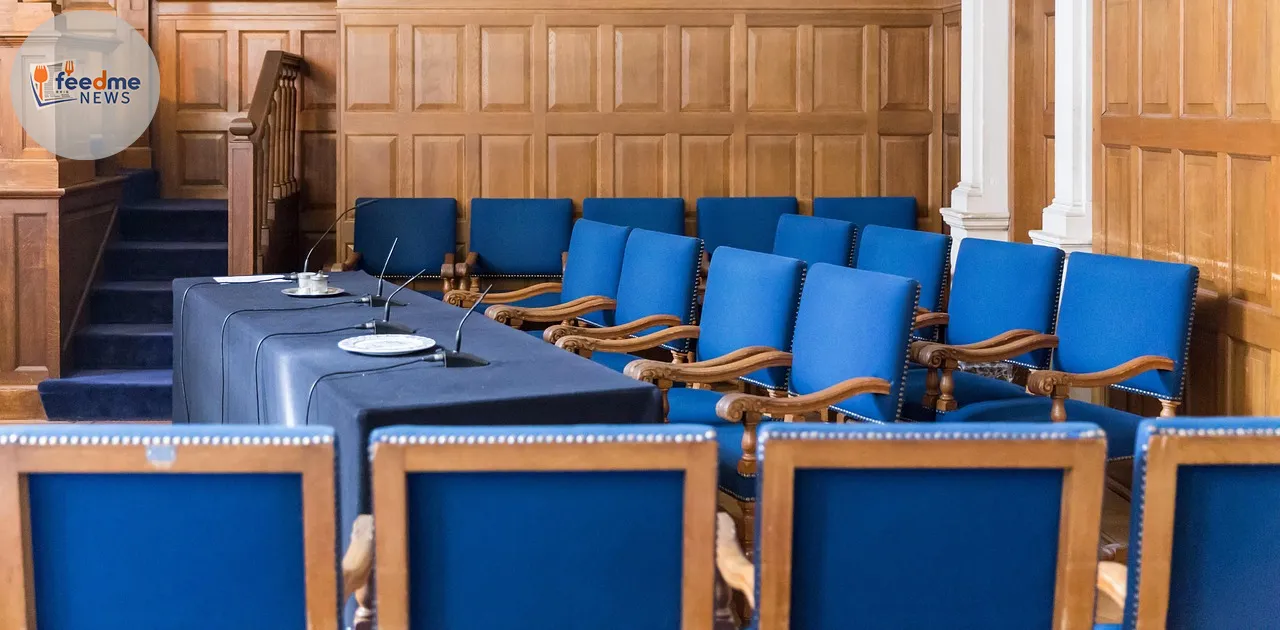The British government’s plans to restrict jury trials to a narrow set of the most serious offences, drawing a sharp warning from the Law Society that the proposals “go too far.” According to reports, the government intends to keep juries for murder, rape and manslaughter, while judges or magistrates would hear most other criminal cases. The move comes only days after the House of Lords Constitution Committee cautioned that growing distrust in the legal system threatens the rule of law. Legal leaders say the change could reduce transparency and weaken public confidence, even as ministers face pressure to speed up cases and clear backlogs. Victims’ groups, defence lawyers and civil liberties advocates now prepare for a fierce debate over how far the government can reshape a core feature of English justice without damaging it.
Timing and location
The plans surfaced on Wednesday, 26 November 2025, in London. Today’s Wills and Probate first reported the proposals, which are expected to be set out in Westminster.

What the government wants to change
Ministers plan to limit jury trials to a small set of the gravest charges, according to the report. That approach would keep juries for murder, rape and manslaughter, while other offences would proceed without a jury. The government has not published the full text of the reforms. Key details remain unclear, including which court would hear cases that leave the jury system and what safeguards would protect fairness in judge-only hearings.
Supporters of reform argue that the system needs to move faster. They say courts face severe delays and need more capacity. They also point to complex, document-heavy cases that can take weeks to explain to jurors. They claim judge-only trials could shorten hearings and reduce stress for victims and witnesses. Those arguments often surface when leaders look to cut waiting times and reduce pressure on the Crown Court.
Why the Law Society says the plan goes too far
The Law Society, which represents solicitors in England and Wales, says curbing jury trials risks public trust. It argues that juries anchor community participation in justice and help reflect public standards in verdicts. It warns that moving most crimes to judge-only or magistrates’ hearings would narrow that civic role and reduce transparency in decisions. The Society’s response follows the headline claim that the plans “go too far,” published alongside the report on Wednesday.
Legal professionals also highlight fairness. Defence lawyers say juries can guard against unconscious bias by spreading decisions across 12 citizens, drawn at random. They argue that a single judge, even with training and integrity, concentrates power. They warn that a broad shift away from juries would need strong safeguards, clear appeal routes and rigorous public reporting to keep confidence intact.
A system built on juries—where they sit today
In England and Wales, juries sit in the Crown Court for indictable offences and for either-way offences when a defendant elects trial by jury or a magistrates’ court sends the case up. Magistrates hear most low-level cases without a jury. Juries have deep roots in English law and public life, with their modern rules set out in legislation such as the Juries Act 1974. They provide open justice and community oversight in serious criminal cases.
Courts already allow limited departures from jury trials. In rare circumstances, judges can order a trial without a jury where there is a real risk of jury tampering. Northern Ireland also used non-jury “Diplock” courts during the Troubles due to security risks, a system tightly bounded by statute and oversight. These exceptions show that the law can adapt in response to specific threats. They do not amount to a general policy of removing juries from most crimes.
Lords Constitution Committee flags risk to the rule of law
Earlier this week, the House of Lords Constitution Committee warned of “increasing distrust in the legal system” that placed the rule of law under threat. That warning lands with extra weight as the government moves to reshape how trials work. The committee’s remit focuses on constitutional balance and legal safeguards. Its recent message underscores a wider concern: when public trust dips, even well?intended reforms can backfire.
Committee members and legal academics often stress the link between transparency and trust. Jury trials take place in open court, with verdicts delivered in public. Jurors do not give reasons, but the public nature of the process helps legitimacy. If ministers reroute most trials into judge-only settings, reformers will need to explain how openness, scrutiny and independence will remain strong—and be seen to remain strong.
Speed, capacity and the case backlog
Court delays frustrate victims, defendants and witnesses. Successive governments have struggled with backlogs in the Crown Court. Officials often look at case management reforms, more judges, extra sitting days and estate upgrades to tackle the problem. Proposals to limit jury trials tend to sit within that wider push. Advocates say judge-only hearings could complete more quickly, freeing court time.
Critics respond that speed does not equal justice. They warn that quick trials can still produce unfair outcomes if they cut corners on disclosure, interpretation or time to examine evidence. They say the jury’s collective judgment offsets mistakes that a single decision-maker might make under pressure. They call for investment in the court estate, digital disclosure tools and legal aid as safer ways to reduce waiting times without changing the character of serious trials.
What this could mean for defendants, victims and courts
Any broad move away from juries would change how defendants make choices. Today, defendants charged with either-way offences may opt for a jury. If that route closes, they may face judge-only trials in the Crown Court or more hearings in the magistrates’ courts. Defence practitioners say those shifts could alter plea decisions and trial strategies. Victims’ groups, meanwhile, will weigh whether speedier cases provide closure while still delivering confidence in verdicts.
Courts will also need to manage resources. If judges take on more trials, senior judiciary will assess training, listing and oversight. Clear guidance would need to address how courts record and explain decisions, especially where public concern runs high. Appeal courts may see more challenges as parties test new boundaries and seek clarity on fairness and procedure.
Politics, scrutiny and the road ahead
Any plan to reshape jury trials will face intense parliamentary scrutiny. Ministers would need to bring forward a Bill and guide it through committee stages, report, and votes in both the Commons and the Lords. The Lords Constitution Committee has already signalled its concerns about trust and the rule of law. Backbench MPs and peers from across parties often defend jury trial as a civic cornerstone, even when they support faster justice.
Civil liberties groups and professional bodies will likely demand detailed impact assessments. They will ask how the changes would affect acquittal and conviction patterns, appeal rates, court capacity and public confidence. They will also look for strong safeguards, including thresholds for judge-only trials, reasons for decisions and robust rights of appeal. The government will need to show that reforms enhance fairness and efficiency, not one at the expense of the other.
How experts frame the constitutional stakes
Legal scholars describe jury trial as a constitutional convention—foundational in culture, though not absolute in law. Parliament can legislate to change it. But sweeping changes can carry constitutional weight because they redefine how the state exercises coercive power. Experts say that kind of reform demands broad consensus, clear evidence and a careful legislative process that addresses risks head?on.
They also point to the importance of legitimacy. The justice system depends on public acceptance of outcomes. Juries help secure that acceptance by bringing citizens into the process. If ministers narrow that role, they must replace its legitimacy function with other measures—such as detailed, transparent judgments, stronger open justice rules and active community engagement around the courts.
As debate gathers pace, the stakes look high. The government wants a system that moves faster and treats victims fairly. The Law Society fears that shrinking jury trials would damage the public’s trust and tilt the balance of power in courtrooms. The Lords Constitution Committee has already warned about distrust that endangers the rule of law. Parliament will now test whether ministers can deliver efficiency without eroding a pillar of English justice. The coming weeks will show whether the government revises its approach, sets out stronger safeguards, or pushes ahead and asks the country to accept a profound change to how guilt is decided.






